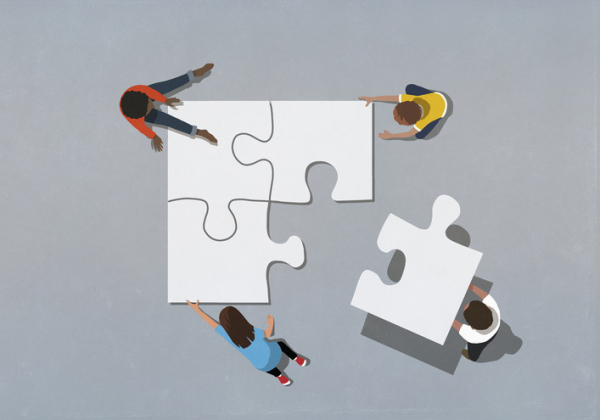
We all want our child to have friends. We want them to be happy, and to build the social skills and connections that will help them now and in the future.
Sometimes, and for some children, making friends isn’t easy. This is particularly true after the COVID-19 pandemic. Because of isolation and remote school, many children either didn’t learn the skills they need to make friends — or those skills got rusty.
Here are some ways parents can help.
Start at home: Learning relationship skills
Making and keeping friends involves skills that are best learned at home with your family. Some of them include:
- Empathy. Make sure that everyone in the family treats each other fairly and with kindness. Sometimes we turn a blind eye to sibling fights, or feel justified in snapping at our partner when we have had a long day. No matter what we say, our children pay attention to what we do.
- Curiosity about others. Make a family habit of asking each other about their day, their interests, their thoughts.
- Communication skills. These days, devices endanger the development of those skills. Shut off the devices. Have family dinners. Talk with each other.
- Cooperation. Do projects, play games, and do chores as a family. Work together. Help your child learn about taking turns and valuing the input of others.
- Regulating emotions. It’s normal to have strong feelings. When your child does, help them find ways to understand big emotions and manage them.
- Knowing when and how to apologize — and forgive. This really comes under empathy, but teach your child how to apologize for their mistakes, make amends, and forgive the mistakes of others.
All of these apply also to how you and your partner talk about — or with — other people in front of your children, too!
Be a good role model outside the home, too
When you are outside your home, be friendly! Strike up conversations, ask questions of people around you. Help your child learn confidence and strategies for talking to people they don’t know.
Make interactions easier
Conversations and interactions can be easier if they are organized around a common interest or activity. Here are some ways parents can help:
- Sign your child up for sports or other activities that involve their peers. Make sure it’s something they have at least some interest in doing.
- Get to know the parents of some of your child’s peers — and invite them all to an outing or meal. It could allow the children to get to know each other while taking some of the pressure off.
- When planning playdates, think about fun, cooperative activities — like baking cookies, or going to a park or museum.
Keep an eye on your child — but don’t hover
Ultimately, your child needs to learn to do this — and you don’t want to embarrass them, either. The two exceptions might be:
- If the children aren’t interacting at all, you might want to suggest some options for activities. Facilitate as necessary, and step back out again.
- If there is fighting or meanness on either side, you should step in and make it clear that such behavior isn’t okay.
Keep an open line of communication, and be supportive
Talk with your child regularly about their day, about their interactions, and how things made them feel. Listen more than you talk. Be positive and supportive. Remember that part of being supportive is understanding your child’s personality and seeing the world from their eyes. You can’t make your child someone they are not.
If your child keeps struggling with making friends, talk to your doctor
All parents need help sometimes — and sometimes there is more to the problem than meets the eye. This is particularly true if your child has ADHD or another diagnosis that could make interactions more challenging.
For information on supporting friendships at different ages, check out the advice from the American Academy of Pediatrics.
Follow me on Twitter @drClaire
About the Author

Claire McCarthy, MD, Senior Faculty Editor, Harvard Health Publishing
Claire McCarthy, MD, is a primary care pediatrician at Boston Children’s Hospital, and an assistant professor of pediatrics at Harvard Medical School. In addition to being a senior faculty editor for Harvard Health Publishing, Dr. McCarthy … See Full Bio View all posts by Claire McCarthy, MD